Enhancing critical thinking Normal Numbers Worksheets for Ages 3-9
5 filtered results
-
From - To
Unlock your child's full potential with our "Enhancing Critical Thinking Normal Numbers Worksheets for Ages 3-9." Designed to boost mathematical skills and promote analytical thinking, these worksheets engage young learners through fun, interactive activities. From counting and number recognition to basic addition and subtraction, each worksheet focuses on building a strong numerical foundation. Perfect for home or classroom settings, these resources equip children with the tools they need to excel in math while developing essential critical thinking abilities. Download today and watch your child’s confidence and competence in math soar! Visit Kids Academy for more information.
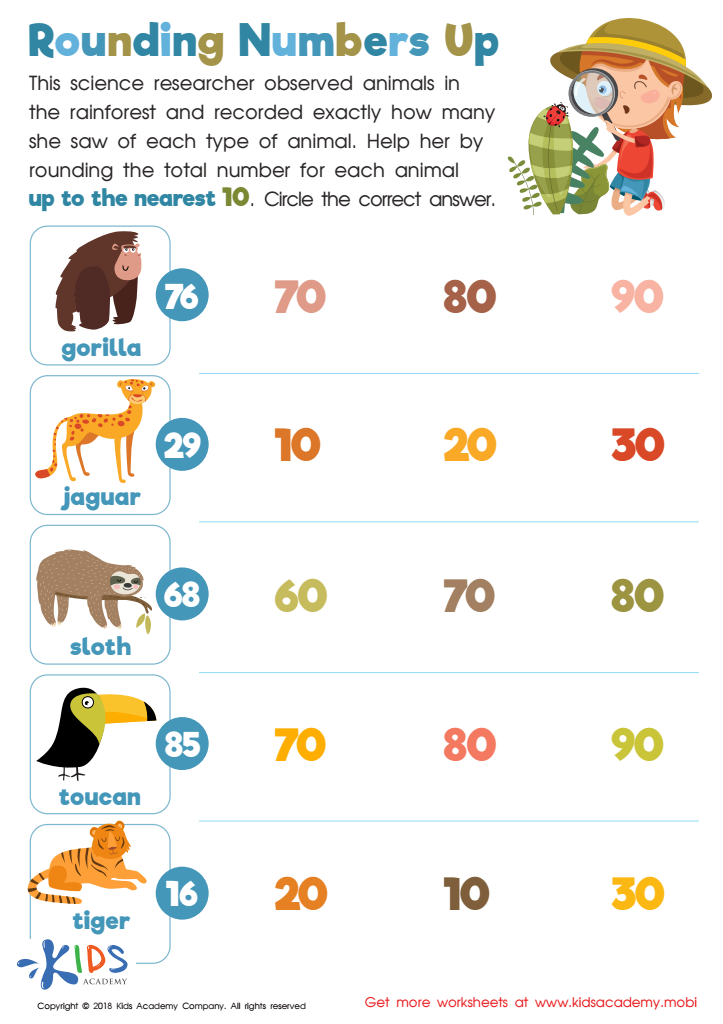

Rounding Numbers Up Worksheet
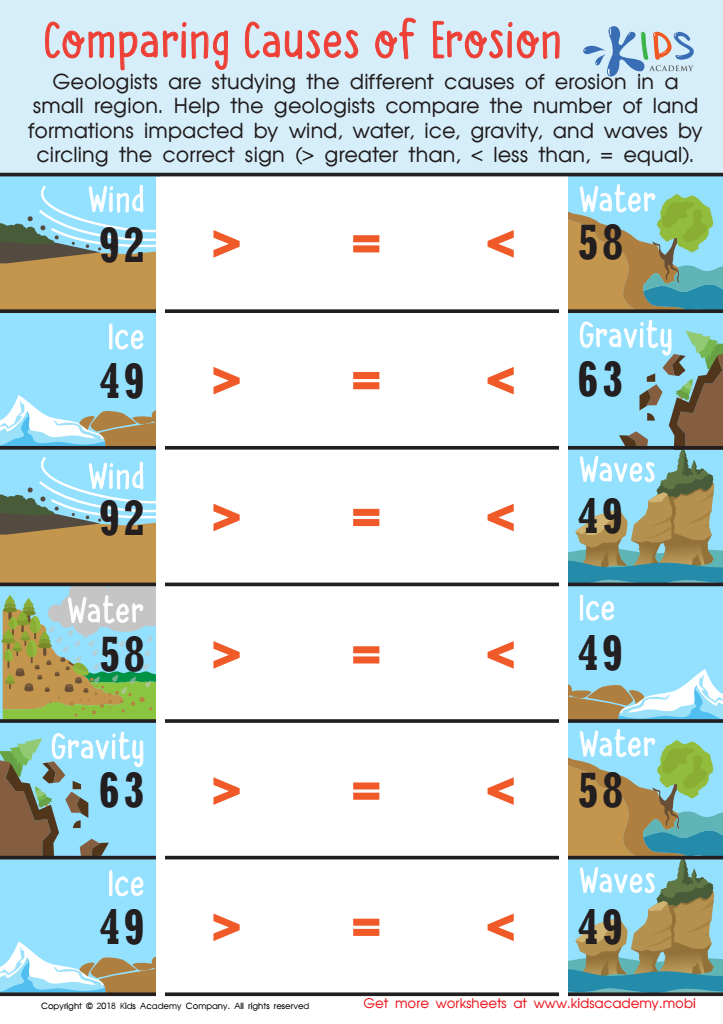

Comparing Causes of Erosion Worksheet
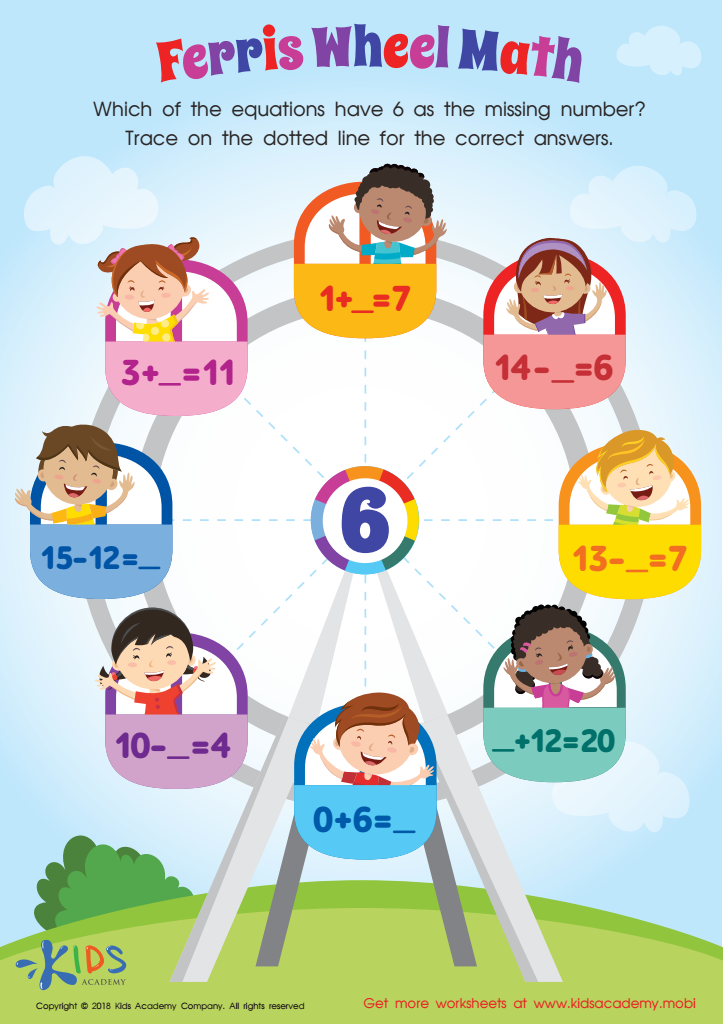

Missing Number: Ferris Wheel Math Worksheet
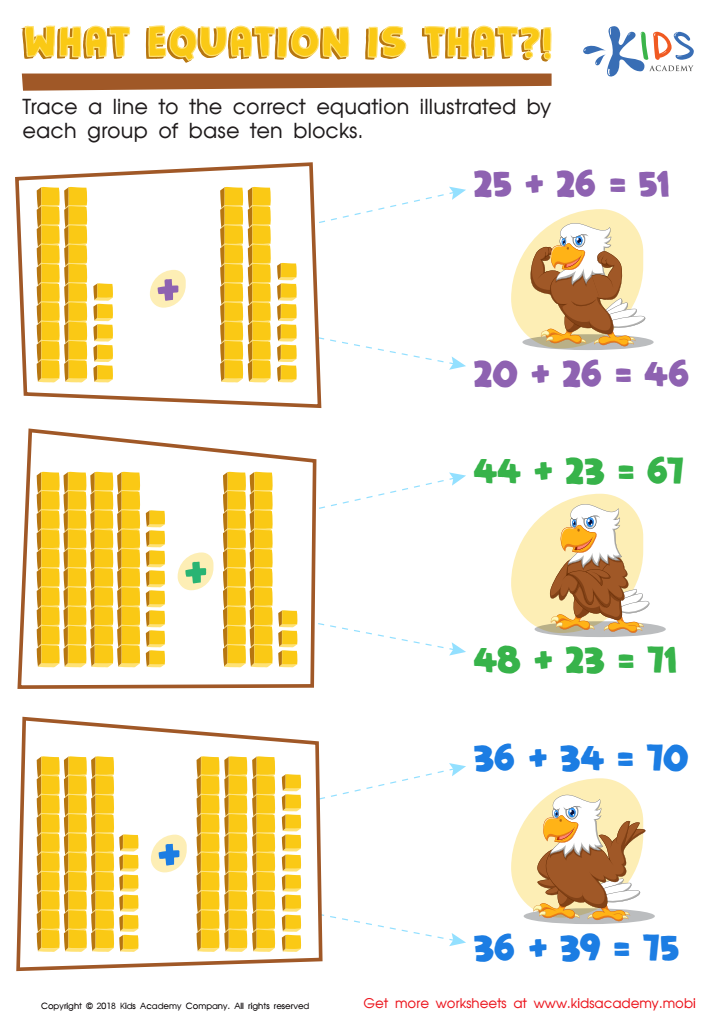

What Equation Is That? Worksheet
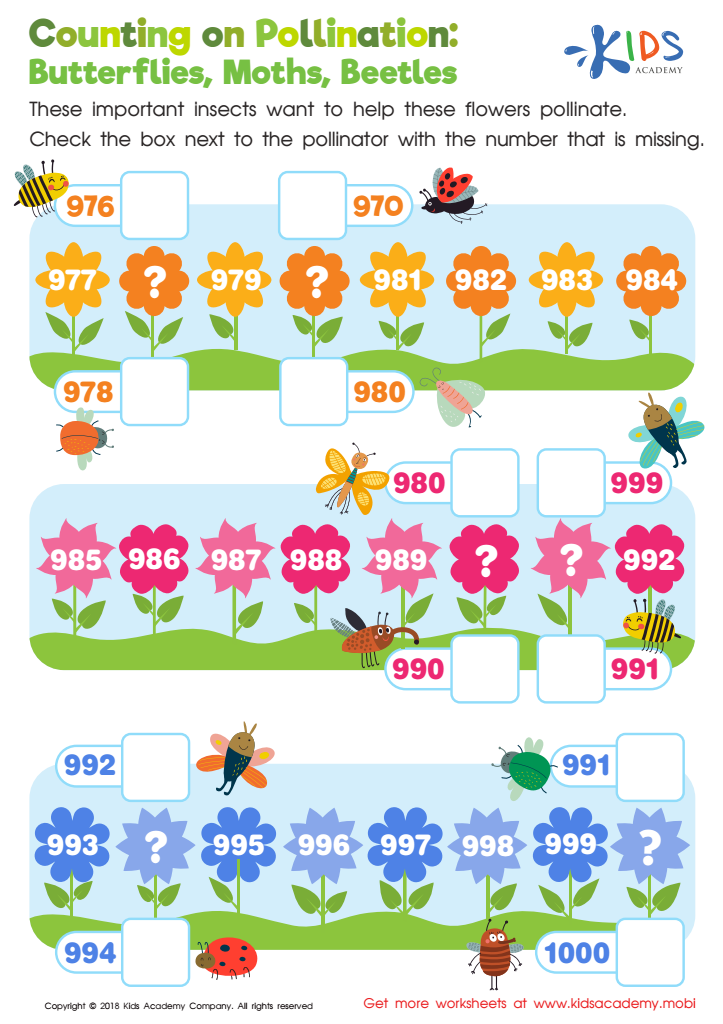

Counting on Pollination: Butterflies, Moths, Beetles Worksheet
Enhancing critical thinking skills in children aged 3-9 is crucial for their overall development and future success. At this formative stage, children's brains are incredibly receptive and malleable, creating a prime opportunity to build foundational cognitive skills. Parents and teachers who focus on fostering critical thinking are essentially laying the groundwork for enhanced problem-solving abilities, creativity, and independent thinking in their young ones.
When children engage in activities that stimulate critical thinking, they learn to ask questions, analyze information, and think deeply about various concepts. This not only enhances their intellectual abilities but also improves emotional intelligence, as they become more adept at understanding different perspectives and making more informed decisions. Furthermore, critical thinking skills acquired early can translate to better academic performance and refined social interactions.
Normalizing activities and discussions around numbers and logical reasoning can help demystify complex subjects such as mathematics and science. By integrating critical thinking exercises in day-to-day learning, children are more likely to develop a natural affinity for these subjects, thus maintaining their curiosity and enthusiasm.
In essence, enhancing critical thinking prepares children not just for academic challenges, but for navigating life’s myriad complexities. It equips them with the resilience and adaptability needed for lifelong learning and personal growth.
 Assign to My Students
Assign to My Students





















